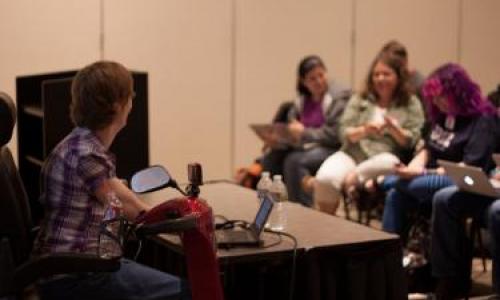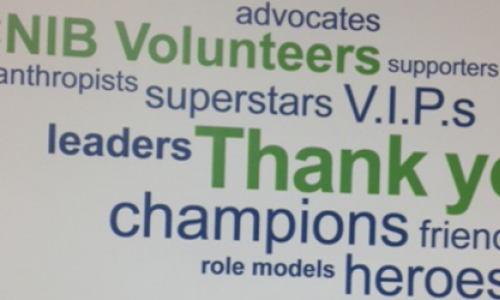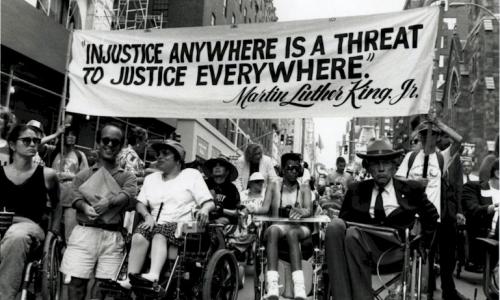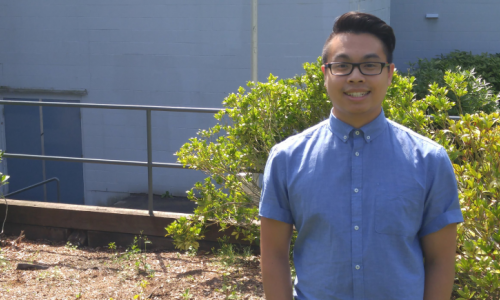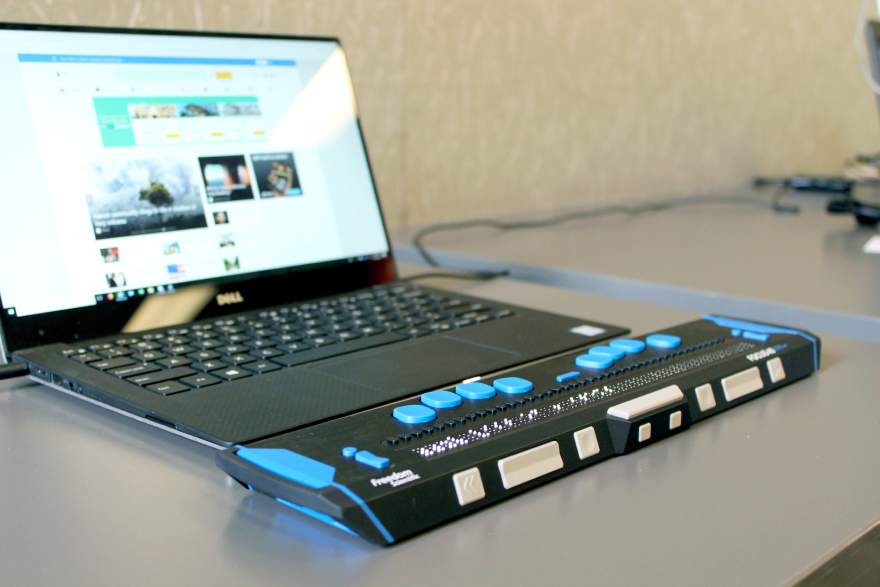
Helping someone is one of those things we all do from time to time, and it is generally just because we want to lend a hand. Please understand that there is absolutely nothing wrong with helping someone out, but have you ever stopped and considered what the experience was like for the other person? Odds are most people just offer the help, and once it’s over, they continue on with their day without any sort of reflection on how helpful they actually were or how the other person felt while in the situation. Coming from a disabled person’s perspective, the topic of help is often a controversial one, and here’s why.
It is assumed that people with disabilities always need help. Yes, sometimes this is the case, but honestly, it all depends on the situation we are in. For example, if I am in an area where either I have never been before or have visited very little and someone thinks I am lost and offers me help, I will most likely accept it until I can get family, friends, or Orientation and Mobility (O and M) instructors to teach me the new area. Then, once I’ve learned it, I am able to travel the route independently without any help. Although in these predicaments the help being offered can bring on a sense of relief and gratitude, it can also bring on feelings of frustration and even embarrassment because it results in you not being able to do it for yourself. Independence is one of the number one goals people with disabilities strive for, but when accepting help, that independence can feel like it drops a few notches. This is not to say that we hate when people offer help – sometimes it makes things much easier and we really might need the help. We just wish we could do those certain things on our own like everyone else. For a better understanding of what I mean, let’s rewind to a couple of weeks ago.
In the story below, I knew exactly where I was going the entire time and didn’t actually need any help.
It was a sunny Saturday morning and I was on my way to a volunteer opportunity. I had to take the 145 bus to Production Way University SkyTrain station from the West Mall Complex bus stop, something many of us do on a regular basis. Once at the SkyTrain station, I got off at the bus loop and was using my mobility cane and listening for the beeping of the fair gates to direct myself, but I overshot and went too far to the left. A nice man offered to help me find the gates, which I accepted since it was early and I wasn’t quite awake yet.
As I was trailing the side of the building with my cane to stay straight, he was trying to grab my arm and pull me toward the gates. I kindly asked him to just give me verbal directions instead. However, he then proceeded to put his arm around my shoulders which I found very uncomfortable and unnecessary. So I twisted out from under his arm and unfortunately and painfully smacked straight into a pole. I don’t think the man realized that his arm around my shoulders was distracting me from using the cane properly. After I finally got through the gates, I was making my way towards the escalator and a lady began calling out directions to me for the elevator from across the entryway. I didn’t want to use the elevator so I called back and said that I’m okay and that I’m just going to the escalator. She continued giving directions to me until I got on the escalator, even though I told her I was fine and didn’t need any help. Once at the top of the escalator, I knew I had to wait on the left side of the platform for my train and there is a bright yellow bumpy strip on the ground to tell people that that is the edge of the platform. Even though I found the strip with my cane and took a voluntary step back to be safe, someone pulled me even further back from the edge, then continued to push me onto the train when it arrived. While on the train, a passenger asked which stop I was getting off at. I mentioned the stop, and they said they would help me since they were going there anyway. I politely declined because I was meeting a friend there and that I would be okay. However, once my stop was announced, that same person took my hand off the pole which I was holding to keep myself steady. This really surprised me, and I explained that I don’t let go of the pole until the train has come to a complete stop because I don’t want to fall. As the doors slid open, they tugged my hand off the pole once again and steered me through the doors onto the platform. I found my friend, and I continued on my way without any more incidents. All these events happened more than normal that day, but needless to say by the end of my travels I was quite frustrated, especially since this all happened within half an hour. Believe me when I say I know all those people probably just genuinely wanted to help me. However, having people decide for me that I needed help, and not listening when I declined wasn’t what I needed or how the situations should have been handled.
That all being said, I would now like to point out a few do’s and don’ts when it comes to offering help to a disabled person.
Do:
-
Simply just ask if we need any help. This is honestly the best and most important thing that can be done.
-
Conduct yourself in the same manner with us as you would anyone else. By doing this we feel like we are being seen as an equal, and allows us to explain the best way to assist us.
Don't:
-
Go and grab someone's arm when offering help. We in the blind community call that “the invisible hand,” which is fitting since we can’t see who is coming up to us and trying to pull us somewhere. This happens way more often than you would think, and it is not okay! You don’t go up to a fully sighted person and do that, so please don’t do it to us!
-
Talk to us like we are incapable of doing anything for ourselves or speak in overly-raised voices while standing right next to us. Talking to us in these ways feels very condescending, and is rather insulting.
-
Be offended if we decline your offer of help. We aren’t being stubborn or unreasonable, it is just because we really don’t need any help.
I don’t assume that by giving a list of dos and don’ts for helping disabled people that everyone is automatically going to change the way they approach these types of situations. There will always be people who come up and silently pull or push us where they think we want to go, there will always be people who presume we are incapable of doing anything for ourselves, and there will always be people who will decide for us if we need help and won’t listen when or if we decline.
This is unfortunately the reality for a disabled person. However, there are also many people who will kindly and politely ask if we need help in a normal voice, who will ask for the best way to assist us, and who will let us choose for ourselves if we want the help or not. These people who handle the situation in a calm, friendly, and accepting manner are honestly a breath of fresh air. All we want is to be treated as an equal and make our own choices. So when you go to offer help to a disabled person, please remember to use your words and simply ask if they need help, let them decide on their own, and if they accept, let them tell you the best way to assist them.









